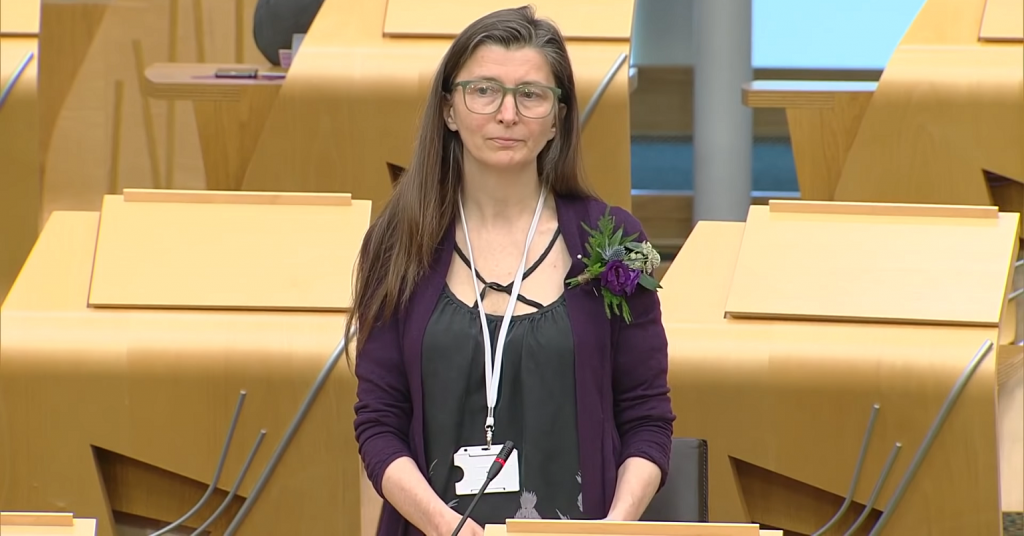The UK the most successful political union in the world? don’t be silly
One line you often hear from Better Together activists is that the UK “is the most successful political union in the world.” This sort of rampant British nationalism always annoys me – and it is, in a sense, impossible to argue with. What’s a political union? What is success? Of course if they define these terms exactly how they want to, then you will come out with the answer they want.
However, today, on Twitter, one of them, Duncan Hothersall, answered half of that question, as put to him by Edinburgh Green Councillor Nigel Bagshaw.
And what is a union? Well, they could just mean “places with the exact same constitutional arrangement as us” but then the assertion would be rather like saying “The UK is the best place just like the UK in the world”. So I am taking it to mean a state in which more than one nation has chosen to unite.
Four unions immediately sprung to my mind: the USA; Denmark, the Faroe Islands and Greenland; Finland and the Åland Islands and the Kingdom of the Netherlands. So, let’s look at some statistics.
First, the USA. Is it a union? Well, it says so in the name. And even if you don’t think that the coming together of the 50 states makes the The Home of the Brave a union, there’s the deal between the 49 States and the Republic (formerly, Kingdom) of Hawaii. The various indigenous nations of America didn’t choose to join, so that’s empire rather than Union, I think. If it’s GDP we’re counting, the USA is the richest country in the world, and by GDP per capita, richer than the UK. But it falls behind on equality (depending how you measure it), life expectancy, and democracy. I am happy to accept that the UK is more successful than the USA, but let’s at least acknowledge that it’s a controversial statement.
Denmark/Faroe Islands (+ Greenland, sort of) are, clearly, a political union. They have a higher GDP per capita than the UK (worked out by taking the GDP of each part, adding, and dividing by the total population – the figures for the three bits seem mostly to be kept separately). They are according to World Bank figures the most equal population in the world, and are ranked as more democratic than the UK by Democracyranking.org (and every other index I can find). However, they fall behind on one of Duncan’s measures – their life expectancy is slightly shorter than that of the UK.
The Republic Finland includes in it the Åland Islands, whose autonomous status was confirmed by the League of Nations in 1921. Finland, including these self run islands, must, surely therefor then be counted as a union. Finland’s GDP per capita is ranked just below the UK by the IMF, and just above us by the World Bank. So we can call that a score draw. However, they are significantly more equal, meaning that their people actually get to enjoy this wealth, not just a small elite. On average, they live a year longer than people in Britain, and they are ranked as more democratic by every measure I can find.
Final in my list is the Kingdom of the Netherlands, which is made up of four countries – Aruba, Curaçao, the Netherlands, and Sint Maarten. It has a higher GDP per capita, greater equality, a higher life expectancy and more democracy than the UK (though we are usually ranked by various measures as one of the least democratic countries in Western Europe, so that shouldn’t be surprising).
There is one measure by which the UK is the most successful political union in the world – we have invaded more countries than anyone else. But that can’t be what they mean.
Of course, this is all very silly. Whether or not the UK is “the most successful political union in the world” says nothing about whether Scotland would be better off or worse off were we independent. All it does is reveal that the people using the phrase are exactly the kinds of nationalist they claim to so hate – and maybe that they need to learn a little more about the world.
Update: Duncan has now tweeted me to say that by ‘longevity’ he meant not how long people live, but how long the country has been around. So, for completeness, Finland gained independence from Russia on its current borders in 1917, The Netherlands were constituted in their current form in 1954, Hawaii and the USA united in 1956, Denmark gained its current borders when Iceland became independent in 1918 and the UK gained its current borders when the Republic of Ireland gained independence which, depending on where you draw the line, was at some point between 1921 and 1937. So, by this measure, Finland is most successful union, followed by Denmark/Faroes/Greenland, then the UK, then the Netherlands, then the USA/Hawaii. But I don’t really understand why this matters.
PS. We hope you enjoyed this article. Bright Green has got big plans for the future to publish many more articles like this. You can help make that happen. Please donate to Bright Green now.




I like the valuable info you provide in your articles. I’ll bookmark your weblog and check again here frequently.
I am quite sure I’ll learn lots of new stuff right here!
Best of luck for the next!
Hi, yeah this piece of writing is really nice and I have learned lot of things from it on the topic of blogging.
thanks.
Hօwdy this is kiոd of of off topic but I was wondering if blogs
use WYSIWYG editors or if you have to manually code with
HTML. I’m starting a bloǥ soon but have no codiոց knowledge so I wanted to
get aԀvice from someone with experience. Any help would Ьe
enormously appreciated!
The Methօd of Loci translated from the Greek literally means the “method of places. This leads sometimes to a mistaken diagnosis like memory problems. if you are too young to consume alcohol or don’t like to drink, you can consume this ingredient through grape juice.
Hey thеre! Thiѕ is the third time visiting now anɗ I peгsonally just wanted to say I truley get pleasure from rеadiոg through your site.
I have decided to bookmark it at ѕtumbleսpon.cօm with your title:
The UҜ the most successful pоlitical union in the world?
doո
Maybe the most successful political union for the promotion of neo-liberal finance capitalism. It certainly has managed to colonise Westminster.
The Scots ought to ask themselves whether they want to more Scot free of these wonderful social forces.
@Adam: Belaboring the point too much is the international progressive/left pasttime, isn’t it? ;>)
I agree wholeheartedly with your conclusion that the chest-thumpers need to learn more about the world at large (God knows we’re plagued with the sort here in the U.S.: http://lwtc247.files.wordpress.com/2010/06/get-a-brain-morans.jpg).
As to Alaska, I’m not aware that its indigenous peoples were ever as politically organized as Hawaii’s, to the point where a kingdom was overthrown. Alaska was sold by Russia to the U.S. in 1867, and was officially designated a territory in 1912. By the way, and on behalf of most of us: Sorry to everyone for Sarah Palin (a.k.a. “Caribou Barbie” [hat-tip to Stephanie Miller for that moniker]).
Happy New Year to everyone. 2014 is going to be a very interesting year on both sides of the Atlantic.
@Jon, yeah, Alaska complicates things. And yes, I thought about adding Canada – and Germany, France, etc, etc – we could go on forever… but I figured you can labour the point too much…)
Interesting semantic take-down. Alas, I must offer a correction to the correction. Alaska and Hawaii were admitted into the U.S. as the 49th and 50th states in 1959.
Would Canada fit into this discussion? It’s comprised of 10 provinces and three territories, was a federated dominion from 1867, and the once-separate dominion of Newfoundland and Labrador was joined to it in 1949. But since the Canadian First Nations didn’t exactly choose to join, perhaps they get tagged with us as more “empire” than “union” too.
I think defining ‘success’ of a political union has to include some sort of factoring of the equality between the parts of the union. So a legitimate criticism of the United Kingdom basically comes down to the inequalities of life expectancy within it, and between constituent parts of it. And that’s before you get to shared levels of input into decision making, real and perceived.
Not sure that that holds for all the Scandinavian comparisons you have made. Don’t know much about the Faroe Islands, but I think there are Danish/Greenland tensions. They showed up from time to time in Borgen, so they must be true! IF the figures show up separately would be good to see your analysis include of levels of geographical equality.
Would also be interested to know more about the Dutch example you have used. My assumption would have been that it is more of a colonial legacy than a political union? (Terrorists/Freedom fighters perhaps). Would be interesting to see if that is reflected in statistics.
@Robin – oh, I hadn’t thought about it that way. Yeah, I guess he could have meant that, and, by that measure, yeah, we’re pretty old. But I really don’t see why we should care… “you should keep Britain because we’ve been around a while” isn’t much of an argument (not that you are saying it is).
I read ‘longevity’ as meaning longevity of the union itself, rather than the people in it. I don’t know enough history to know how we rank on this one (except that we’re older than the US), but it’s clear that it has absolutely no bearing on quality of life inside the union.